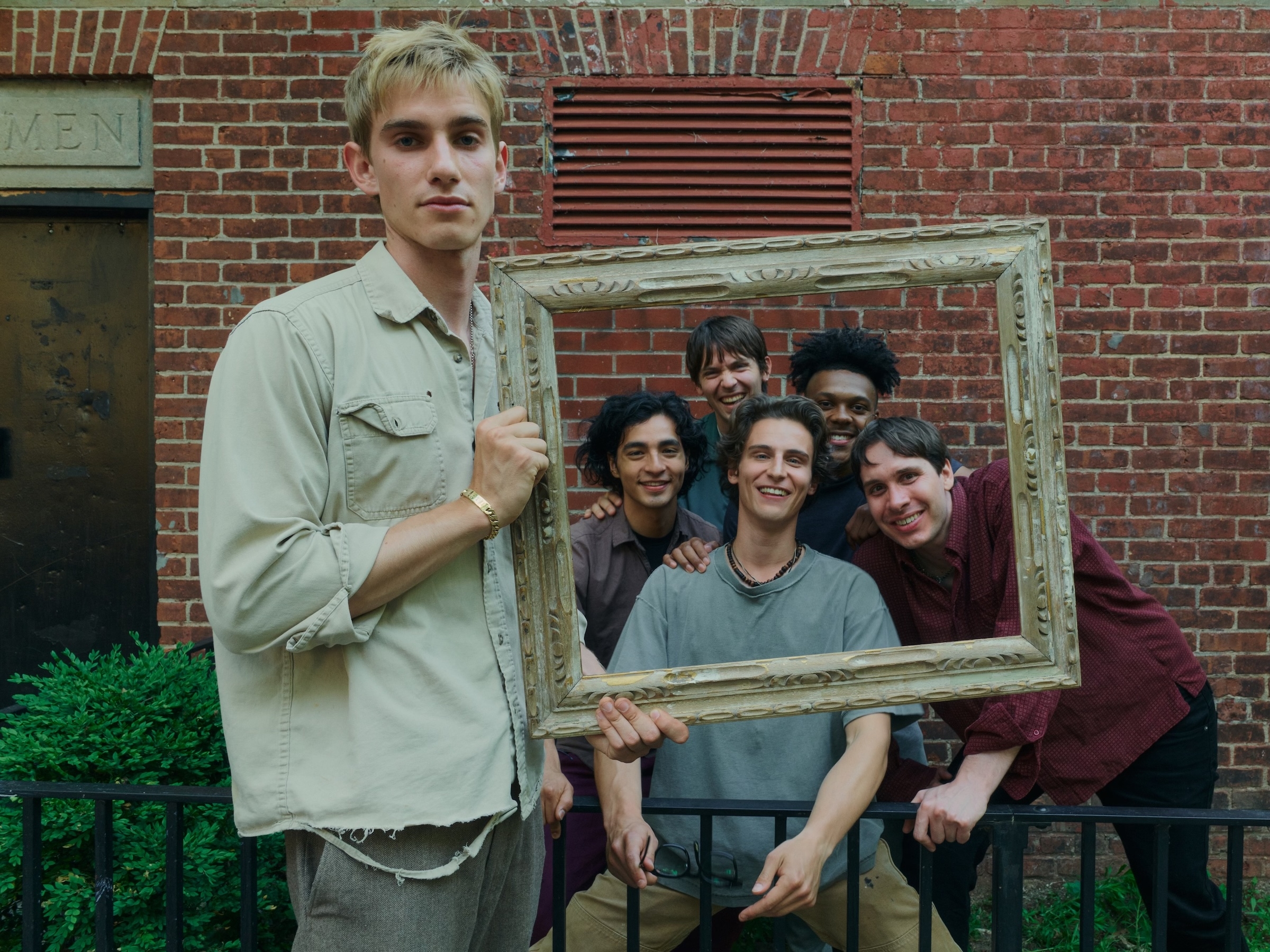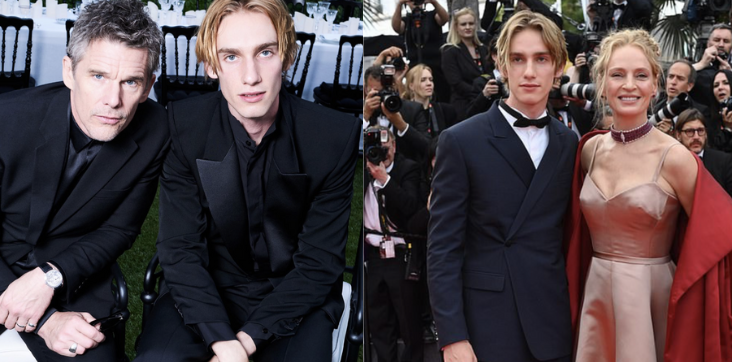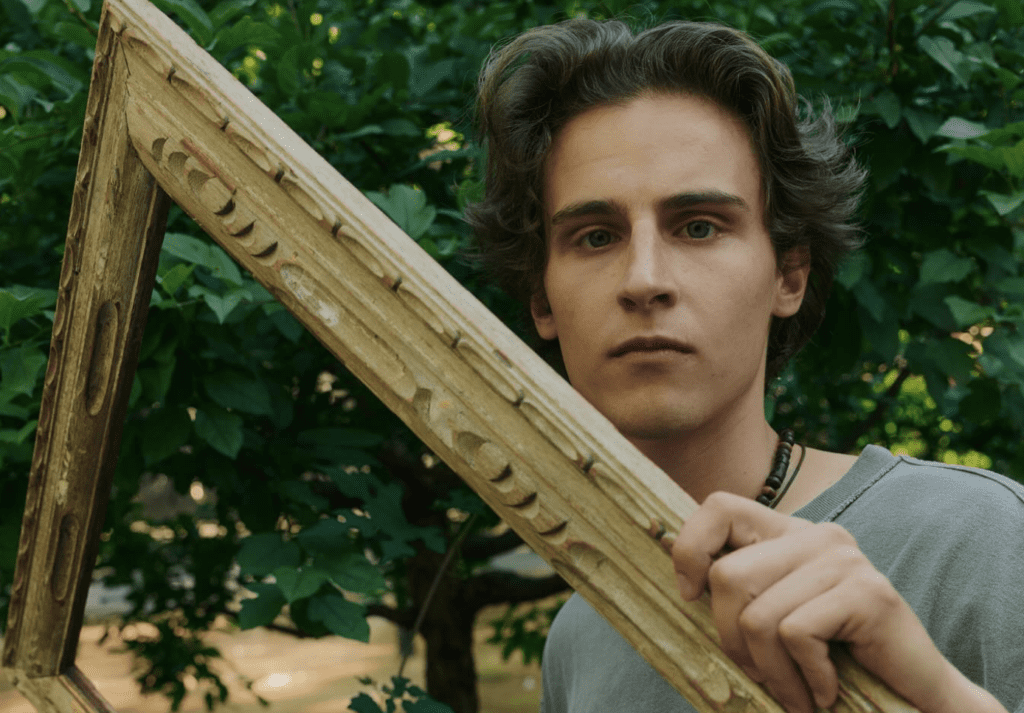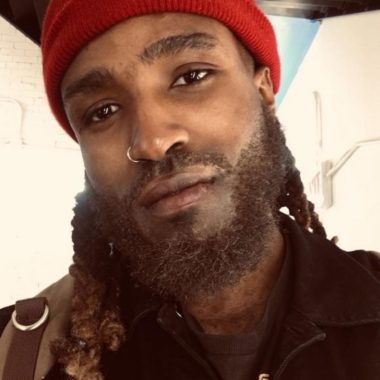Red Hook is known for its creative spirit, hardworking communities, and growing art scene. This September, at Coffey Street Studio, the Brooklyn neighborhood becomes home to Picture Day, the directorial debut of actor Levon Hawke.
Picture Day focuses on masculinity, family dynamics, and hidden secrets. Joined by Booth McGowan, actor and co-founder of Quick & Dirty Theater Company, the play marks a significant step in Hawke’s artistic journey.
In a candid conversation, Levon and Booth discussed family legacies, the intricacies of producing theater that resonates with today’s audience, and the inspiration behind Picture Day.
Roderick Thomas: Levon, this is your directorial debut. What inspired you to take on Picture Day, and what does it mean to you?
Levon Hawke: Picture Day is a reflection of the last few years of my life. It’s about young men trying to navigate their identities within their families. These young men are living together and each character plays a role, concealing parts of themselves. The play explores the secrets we keep—how we show different sides of ourselves depending on who’s in the room. As people leave the room, the real versions of the characters start to emerge.
Roderick Thomas: How do you think secrets shape how men present themselves?
Levon Hawke: I think men often feel pressured to act a certain way in different settings. One of the characters in Picture Day is very open—comfortable with intimacy, and affectionate with his friends. But even he’s keeping something hidden, even from himself. That’s what’s fascinating: the idea that you might not even know what you’re keeping secret.
Roderick Thomas: You also star in the new thriller, Blink Twice, directed by Zoe Kravitz. Did you bring anything from that experience to this project?
Levon Hawke: Zoe has this ability to assess the strengths of an actor and shape scenes to fit their natural impulses. That reminded me to adapt and work with people.
Hawke’s exploration of masculinity and identity in Picture Day feels deeply personal and like a mark of exploration. The 90-minute play centers young men navigating their complex relationships with themselves and each other. What makes a man? What is boyhood and friendship?
Roderick Thomas: Your family’s legacy in film and theater is well-known. How have your parents, Uma Thurman, and Ethan Hawke, influenced your creative process, if at all?
Levon Hawke: Growing up, I watched my parents work, and what stood out was their dedication to storytelling. My father always emphasized collaboration and respecting the process, while my mother taught me the power of vulnerability. Of course, I’m inspired by them, consciously and unconsciously—I welcome that.
Picture Day is about how we as people are shaped by the folks around us—especially fathers. It’s been interesting to think about that in the context of my own life and creative journey.
For Booth McGowan, Picture Day presented its own challenges and opportunities. Coming from a background in one-act plays, McGowan has been learning to navigate the complexities of full-length productions. At the same time, his experiences growing up in Minnesota continue to shape his approach to storytelling.
Roderick Thomas: Booth, how has the transition from one-act plays to a full-length production been for you?
Booth McGowan: It’s definitely a shift. One-acts are quicker, more immediate, while full-length plays give you more time to explore characters and relationships. I’ve always been drawn to stories that unfold slowly—where place and people are deeply intertwined. That’s something I’ve tried to bring to Picture Day.
Our conversation shifted to Booth’s personal experiences growing up in Minnesota and his thoughts on the collaborative nature of theater and an unexpected story that involves a dance party with the legendary musician, Prince.
Roderick Thomas: Booth, you’ve mentioned that Minnesota has a deep influence on your work. How does that shape what you do now, especially here in New York?
Booth McGowan: Minnesota taught me the importance of place and community. Wherever I go, I carry that with me. Red Hook feels like a place where people are connected to their roots, and that’s something I resonate with. I want my work to reflect that—a sense of belonging, of being grounded in where you are, but always reaching for something more.
Roderick Thomas: Do you have a memorable moment growing up in Minnesota?
Booth McGowan: I actually danced with Prince [laughs].
He would throw these $12 shows at his house, and I found myself dancing next to him during one of them. That’s the kind of moment that stays with you. It’s a reminder of how beautiful unexpected connections can be. And that’s what I want to bring to my work—those moments of connection, whether it’s in theater or in life.
Levon and Booth’s collaboration on Picture Day is rooted in a shared desire to tell stories that matter—stories that reflect the complexities of identity, the weight of familial expectations, and the ways we navigate the world as individuals.
Picture Day opens on September 20, 2024. Be sure to catch the play at Coffey Street Studio in Red Hook, Brooklyn.














